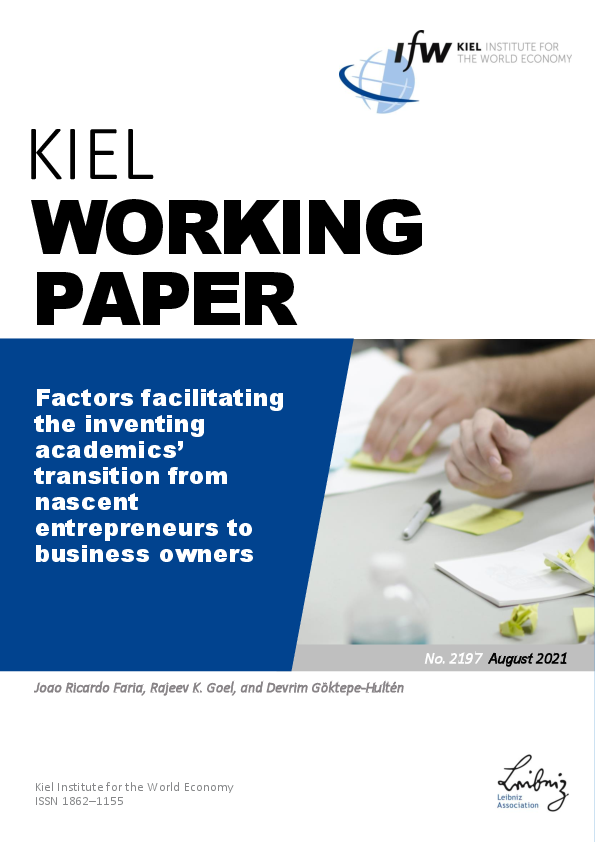Factors facilitating the inventing academics’ transition from nascent entrepreneurs to business owners
Autoren
Erscheinungsdatum
JEL Classification
Schlagworte
Arbeitsmarkt
Innovation und Strukturwandel
Considering the sequential nature of nascent entrepreneurship and business ownership, this paper examines the propensities of academic entrepreneurs to be business owners. A theoretical model sets up the empirical analysis based on survey data from a large German public research institute. Traditionally, scientists and entrepreneurs have been seen to occupy opposite ends of a spectrum in terms of their role in innovation. In academic entrepreneurship the two combine on a number of activities. In order to understand the ways in which academic inventors move from pure patenting to nascent entrepreneurship to business ownership and connect seemingly divergent activities. We model their behavior by looking at various factors among German scientists. Academic inventors present a critical case since science and entrepreneurship are often seen as radically different, not the least in terms of knowledge production. By bringing the analysis from the level of social behavior and roles to the level of knowledge production, we can better address questions such as: How is knowledge in the interfaces of epistemic communities produced? How can such knowledge be organized and sustained? and How can relations between individuals on ‘opposing sides’ be constructively managed? The empirical results show that scientists’ positive attitudes towards commercialization of results consistently contribute to tendencies towards academic entrepreneurship; however, the academic discipline and risk aversion did not have a statistically significant impact. Having a doctoral degree lowered the propensities toward nascent entrepreneurship, but had the opposite effect on business ownership. Finally, age and experience made business ownership more likely. The results of this study would contribute to a more general theory of how scientists can combine their commercial and scientific activities in spite of an alleged divergence.




